- Kenmore refrigerator water filters
- Whirlpool refrigerator water filters
- Samsung refrigerator water filters
- GE refrigerator water filters
- LG refrigerator water filters
- Frigidaire refrigerator water filters
- KitchenAid refrigerator water filters
- Maytag refrigerator water filters
- Kenmore Elite refrigerator water filters
- Estate refrigerator water filters
- GE Profile refrigerator water filters
- Amana refrigerator water filters
- Bosch refrigerator water filters
- Dacor refrigerator water filters
- Electrolux refrigerator water filters
Why is my microwave not heating?
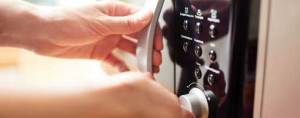

We heavily depend on our microwave for heating and cooking foods quickly. The convenience of using a microwave for cooking is a luxury that we hate to do without.
When your microwave isn’t working, you can follow these tips to fix the problem.
Microwave does not heat
When your microwave has power but doesn’t run when you set the cook time and press the start button, check your settings. Most microwaves have a timer feature. The microwave may be just running the timer instead of cooking. Check the control panel display and set the microwave to the cooking mode if just the timer runs when you press start and try to cook food.
If you set the cook time and press the start button and the control beeps but the microwave won’t start and heat, then the door switch may be faulty or the door may not be fully closed. For safety, the microwave won’t start cooking unless the control detects that the microwave door is fully shut. Running the microwave with the door open would expose you to harmful radiation.
Press the door in firmly and see if the microwave starts cooking if you suspect that the door wasn’t fully closed.
If the microwave still won’t start after making sure the door is fully shut, the door switch may be broken. A wiring failure or bad control could also prevent the microwave from running and heating with the door fully shut.
Although it’s tempting to pull apart the microwave and start checking the door switch when the microwave won’t run and heat, don’t do it. Disassembling a microwave is extremely dangerous. The Consumer Product Safety Commission Safety Alert regarding microwave oven repair warns against attempting DIY repairs on microwaves because of the danger of electrocution. Microwave ovens have high-voltage capacitors that retain a lethal amount of electricity even when the microwave power cord is unplugged from the electrical outlet.
Also, the microwave needs to be checked for radiation leakage after reassembly and before you can safely use it. Additionally, the door interlock switches need to be checked for proper operation by the technician before you can safely use the microwave.
Have a microwave repair technician diagnose and fix the microwave instead of attempting to repair it yourself.
Microwave running but not heating
When the turntable rotates and the fan runs but the microwave doesn’t heat, it’s possible that an internal fuse has blown. There are several types of fuses that can prevent the microwave from heating. The magnetron fuse will prevent the magnetron from getting power needed to heat the microwave. A control board fuse will prevent the electronic control board from sending power to microwave parts that produce heat in the microwave cavity. A thermal fuse keeps the microwave from drawing too much current when a short occurs. The thermal fuse prevents the microwave from heating in some models. The wiring diagram for your microwave shows the various fuses in your model.
When a fuse blows and the microwave won’t heat even though it runs, you may be tempted to fix the problem by replacing the blown fuse yourself. Because of the dangers of attempting a DIY microwave repair noted above, we highly recommend that you have a service technician diagnose and repair a heating failure. A service tech will safely discharge the capacitor and check the heating components before replacing the fuse. The technician will also check for radiation leakage using proper testing equipment after completing the repair.
Don’t risk your life or health by attempting a DIY microwave repair. It’s not worth it. If your microwave stops heating and you can resolve the problem using basic troubleshooting described here or in the owner’s manual, have the microwave repaired by a professional service provider or replace the microwave.
Most common symptoms to help you fix your wall oven
Choose a symptom to see related wall oven repairs.
Main causes: faulty oven temperature sensor, control system problem, weak burner igniter, damaged oven element…
Main causes: broken bake element, bad bake burner igniter, tripped thermal switch, control system failure…
Main causes: broken broil element, faulty broil burner igniter, control system failure…
Main causes: bad oven door lock assembly, faulty electronic control board, wiring failure…
Main causes: lack of gas supply, broken igniter, tripped circuit breaker, broken oven element, tripped thermal fuse, con…
Main causes: lack of electrical power, bad electronic control board, faulty oven control thermostat…
Most common repair guides to help fix your wall oven
These step-by-step repair guides will help you safely fix what’s broken on your wall oven.
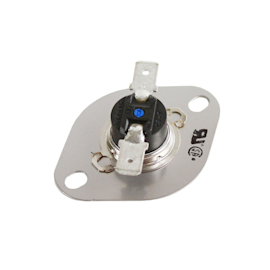
How to replace a wall oven thermal fuse
The thermal fuse trips to prevent the over from excessively overheating. The oven won't heat again until you replace the…
Repair difficulty
Time required
60 minutes or less
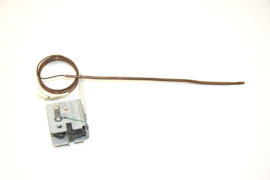
How to replace a wall oven control thermostat
Get your oven temperature under your control by replacing a faulty oven control thermostat.…
Repair difficulty
Time required
60 minutes or less
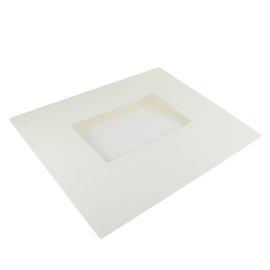
How to replace a wall oven door outer glass panel
Learn how to replace a damaged outer window panel on your wall oven door with these step-by-step instructions. …
Repair difficulty
Time required
45 minutes or less
Effective articles & videos to help repair your wall oven
Use the advice and tips in these articles and videos to get the most out of your wall oven.

Get tips on completing essential holiday cleaning tasks to brighten your home.…

Learn about all the convenient features on our Sears PartsDirect website that make your parts purchases easier.…
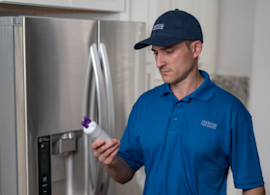
Get answers to frequently asked questions about Sears and Sears PartsDirect.…
